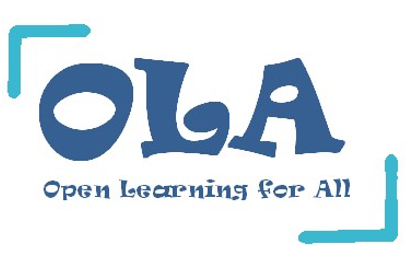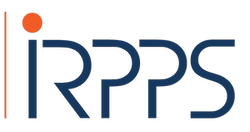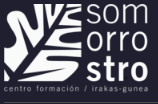
Enhancing digital Open Educational Resources for inclusion against stereotypes

As underlined in the EC Recommendation 2018 on Key Competences (in line with UN, UNESCO, OECD) “everyone has the right to quality and inclusive education, in order to maintain and acquire skills that allow full participation in society”.
OLA project promotes the use of “Open Educational Resources”(OER) and “Open Educational Practices” (OEP) for in presence, distance and blended learning among secondary school systems at European level. Taking into account UNESCO and European Commission priorities, OLA refers to the following Areas of Action:
By the end of the project, 80 interdisciplinary scenarios related to STEAM subjects (Science, Technology, Engineering, Art, Mathematics) will be developed by teachers form the partner countries: Cyprus, Greece, Italy, Romania and Spain.
The scenario developed are available in the OLA/INCLUDE Repository, where, beside the 80 OLA scenario, other 126 scenarios created within the INCLUDE project, developed under the CLIL approach, are available.
A central issue transversal to the project is paying attention to recognizing stereotypes – starting from, but not limited to gender – and values implicitly conveyed by school textbooks and multimedia online resources, so as to promote a wider concept of “digital competences”, including not only strictly technological competences, but also the capability of using online platforms and information sources critically and responsibly, as a premise for exercising a conscious and informed citizenship
In the OLA context an OER is a digital learning resource called «educational scenario», which refers to a digital structured teaching unit describing the educational process of a course and aimed at guiding teachers, aimed at promoting:


Founded in 1923, the National Research Council (CNR) is the largest public research institution in Italy, the only one under the Research Ministry performing multidisciplinary activities.
CNR mission is to conduct research in order to promote innovation and competitiveness of the national industrial system, to foster the internationalization of the national research system,
to provide technologies and solutions to emerging public and private needs, to advice Government and other public bodies. IRPPS is an interdisciplinary research institute of the CNR conducting studies
on social policies and welfare systems, education, relationships between science and society, creation/access/dissemination of knowledge and information technology, demographic and migration issues.
Specifically, the Research Unit ‘Social Studies on Science, Education, Communication’, placed in Rome, aims to understand and enhance relationships between science, politics and society,
combining science and society studies in the following fields: evidence and decision-making processes in the interaction between science, society and politics;
science communication and scientific community; representations of international migrations and representations of migrants in textbooks;
science teaching and participation in the scientific debate; scientific popularization and participatory models.
Common to all topics is the use of participatory methodologies to involve various social actors in the research activities.
OLA CNR-IRPPS staff (international coordinator): Adriana Valente, Claudia Pennacchiotti, Valentina Tudisca, Elisa Butali


The National Technical University of Athens (NTUA) is the oldest and most prestigious educational institution of Greece in the field of technology, and has contributed unceasingly to the country’s scientific, technical and economic development since its foundation in 1836. The School of Electrical and Computer Engineering (ECE NTUA) is well known in Greece and abroad for the research achievements of its faculty members and the good reputation of its students and alumni. The research performed in the ECE School is both of wide scope and high standard, in both fundamental and applied research, securing substantial grants from its researchers’ participation in competitive research programs in national and European level.
The Artificial Intelligence and Learning Systems Laboratory (AILS Lab) is one of the main research units of the ECE NTUA, directed by Professor Andreas-Georgios Stafylopatis. AILS Lab has been established as the union of two major ECE Laboratories, the Image, Video and Multimedia Laboratory (IVML) and the Intelligent Systems Laboratory (ISLab), pioneering from 1989 in areas like neural networks, multimedia content analysis, human interaction, fuzzy logics, ontological knowledge representation and reasoning. AILS Lab has been involved in more than a hundred EU R&D projects, in the area of artificial intelligence, machine learning and applications like multimedia content analysis, digital cultural heritage and data analysis.
OLA NTUA reference staff: Paraskevi Tzouveli

Istituto Comprensivo Carducci-King includes schools of both orders of the first cycle of compulsory education, plus the nursery school, with 1460 students (302 for kindergarten, 633 for primary schools, 525 secondary school of First Instance).
The school building is located in an area in the North of Naples affected by profound socio-economic and cultural changes, having changed from industrial powerhouse to degraded and abandoned area with a high risk of crime and with a migration, especially ethnic Rom, which fuels school drop.
So, it is necessary an efficient and effective linguistic communication to meet the learning needs of a multhi-ethnic audience. It becomes a priority: the improvement of foreign languages proficiency, which become vehicles to promote social inclusion; teaching the curriculum through foreign languages; developing intercultural communication in a multicultural European environment and promoting the European dimension. On this subject, the school has previous experiences in E-twinning projects and in the Erasmus+ KA2 Action.
Visit the IC Carducci-King website
OLA IC Carducci-King staff:Giovanni Buonocore, Carmela Menna, Barbara De Simone, Angela Raffaella Pulcrano, Loredana Tucci, Stefania Cherubino, Rosa Acampora

The University of Cyprus (UCY) is a relatively young University, established in 1989 as the first University in Cyprus with the aim to become a leading educational and research institution, distinguishing itself internationally through the promotion of scholarship and being recognized as an institution of excellence in the Mediterranean region.
The main objectives of UCY are the promotion of scholarship and education through teaching and research and the enhancement of the cultural, social, and economic development of Cyprus. With 7,000 students and nearly 1,536 employees, UCY is the youngest institution to be ranked in the top 550 Higher Education Institutions in the world (placed in the 351- 400 group for 2015-2016 in the Times Higher Education World University Rankings). Furthermore, UCY has been recently ranked 55th worldwide in the “150 Under 50 Rankings” of the top 150 universities under 50 years old (THE World University Rankings). UCY has a vast experience in running small but also large scale research projects, at both national and international level.
OLA UCY staff:Elena Ioannidou, Mohammed Shormani

The 1st Experimental High School of Athens has a total of 25 teachers and 234 students, separated into 9c lasses (3 grades) of 26 students each.
The school collaborates with the University of Athens on a permanent basis. This collaboration includes cooperation in research projects, the University’s support for the implementation of innovative educational practices and providing practical training field for University students who intend to follow a career in education.
The school has established a series of procedures promoting the effort to build a modern educational institution: implementing the educational method of Content and Language integrated learning (CLIL), establishing a special program connecting foreign language teaching with other disciplines such as Biology, History, Home Economics, Geography; developing an annually organized program of cultural activities; establishing 15-20 groups of interest focusing on various subjects (film making, physics laboratories, debate competitions, popular dances, cooking), including students from different schools; developing a complete digital class, thus a full distant learning environment on MOODLE platform, for all educational disciplines; cooperating with scientific or social organizations (e.g. Amnesty International); connecting educational practice with the labor market, by developing an entrepreneurship program and participating in European projects (the KA2 Erasmus “Developing and Evaluating Skills for Creativity and Innovation”).
Visit the 1st Experimental High School of Athens website
OLA 1st Experimental High School of Athens reference staff:Kostis Kontogiannis, Maria Boumpouka

Mircea Eliade School is a primary public school situated in Craiova, a city of 300,000 inhabitants in the south-west of Romania, with around 1,200 students and 60 teachers. The school was founded in 1964 and over the years it has proved to be one of the best schools in the county based on national test results.
Since 2008 the school has been organizing a regional contest called 22 METS (Mathematics English Testing System), in which students test their Maths competences in English, using a CLIL approach. The school students were also involved in the international contest Mathematiques Sans Frontieres and received great scores. The school has a computer lab in which a lot of lessons in different curricular areas are taught using active methods and English teachers are familiarized with the basics principles of CLIL as they use them in order to develop students’ reading and writing skills.
Visit the Mircea Eliade School website
OLA Mircea Eliade School staff: Ioana Genoveva, Lidia Cazacu, Simona Popescu, Văncica Diana-Mihaela

The Somorrostro Training Center is an Educational Center belonging to the Diocese of Bilbao. Their teaching activities address students older than 12, both in the field of regulated education and employment training, while paying special attention to vulnerable people. Their educational assortment aims to fulfill the expectations of students, families, and social and business environment, offering a comprehensive training. Their task is to bolster our students’ incorporation into the job market with as many degrees as possible or the continuation of subsequent studies through a personalized student-tailored training.
Visit the Centro de Formaciòn Somorrostro website
OLA Centro de Formación Somorrostro of Muskiz staff: Nere Sierra
5 asynchronous MOOCs, to support teachers in creating and using OLA scenarios:
OLA Guidelines are part, with the 5 MOOCs, of the training tools aimed to develop teachers’ competences in designing and implementing OER following the OLA approach. The 2 tools are closely correlated, with reciprocal references and should be approached in an integrated way. The Guidelines are intended as a tool where teachers, attending the MOOCs, have the opportunity to deepen the dimensions of greater interest.
The Guidelines are developed in a modular way and divided into 4 sections:
80 inclusive and equitable quality scenarios in STEAM-related school subjects, including multidisciplinary and civic/citizenship issues, for ISCED 1, 2 and 3 school level
Discover the most up-to-date brochure detailing the OLA project available here:
Discover the most recent newsletter covering updates on the OLA project right herein:
Explore past newsletters regarding the OLA project right here:

The European Commission support for the production of this publication does not constitute an endorsement of the contents which reflects the views only of the authors, and the Commission cannot be held responsible for any use which may be made of the information contained therein